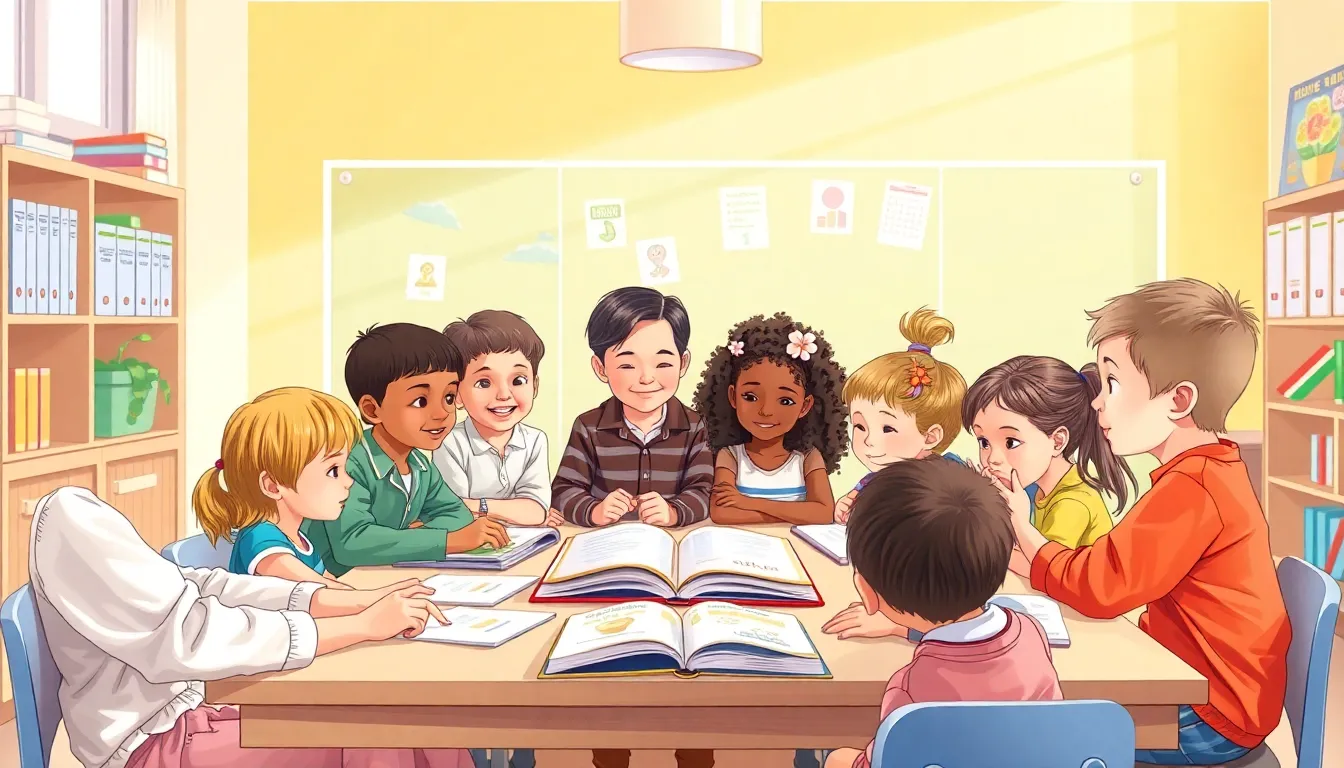In a world where emojis often replace words and TikTok videos are the new bedtime stories, it’s easy to confuse literacy with reading. After all, if you can scroll through social media and understand the latest memes, aren’t you literate? Not quite! While reading is a crucial skill, literacy goes beyond just deciphering words on a page. It’s about comprehension, critical thinking, and the ability to engage with information in meaningful ways.
Table of Contents
ToggleUnderstanding Literacy
Literacy represents more than just the ability to read. It involves comprehension, critical thinking, and effective communication through various mediums.
Definition of Literacy
Literacy encompasses the skills necessary to decode written language and understand context. It includes the ability to evaluate, analyze, and create information across formats. Effective literacy allows individuals to navigate digital content, social media, and traditional print materials. Being literate means engaging with texts critically and interpreting messages accurately, whether through articles or other platforms.
Importance of Literacy
Literacy plays a crucial role in personal and societal development. With strong literacy skills, individuals can access education and job opportunities. It enhances critical thinking and informed decision-making. In a world filled with information, literacy enables engagement in discussions on current events, science, and technology. As a result, proficient literacy skills contribute to democratic participation and foster a well-informed community.
Defining Reading

Reading involves decoding symbols to derive meaning from written text. It extends beyond simply recognizing words, encompassing comprehension and engagement with the material.
Definition of Reading
Reading signifies the process of interpreting written language. The activity entails both recognizing written words and understanding their meanings within context. Comprehension plays a critical role in effective reading, as it allows readers to grasp the author’s intent and message. Beyond basic recognition, reading fosters interaction with content, influencing how information is absorbed and utilized. Various factors, such as prior knowledge and vocabulary, impact how well a reader can engage with text.
Types of Reading Skills
Reading skills encompass a range of abilities that contribute to effective comprehension. Fluency allows readers to process text quickly and accurately. Critical reading involves analyzing the material, questioning its validity, and evaluating arguments. Skimming provides a quick overview of content, while scanning helps locate specific information. Close reading requires focusing on details, enhancing textual understanding. All these skills combine to create a versatile reader capable of navigating diverse textual landscapes.
Literacy vs Reading: Key Differences
Literacy and reading often get used interchangeably, but they represent different concepts with unique scopes.
Scope of Literacy
Literacy encompasses the ability to decode written language, interpret context, and communicate effectively across various mediums. It involves evaluating and analyzing information while creating meaning from diverse formats, such as digital content and traditional print. Strong literacy skills enhance personal development and societal progress. Individuals with advanced literacy can engage in critical thinking and make informed decisions. Literacy also facilitates access to education and job opportunities. Comprehension plays a pivotal role in literacy; it goes beyond recognizing words to understanding entire arguments or themes. Active participation in democratic processes requires strong literacy as well.
Scope of Reading
Reading focuses on decoding symbols for meaning in written material. While it includes word recognition, comprehension and engagement with the text emerge as crucial components. A reader’s skill set encompasses fluency, critical reading, skimming, scanning, and close reading, each contributing to effective understanding. Skills like critical reading enable individuals to analyze the validity of information. Scanning and skimming allow readers to quickly gather essential content. Each reading skill adds to a reader’s versatility in navigating various textual landscapes. Engaging deeply with material fosters not just comprehension but also a personal connection with the content.
The Impact of Literacy on Reading Skills
Literacy significantly influences reading skills, shaping how individuals comprehend and engage with text.
Developing Comprehension
Comprehension emerges as a core component of literacy. Readers gain the ability to understand complexities within a text, interpreting not just words but overarching themes. They connect ideas, synthesizing information to build knowledge. Effective strategies such as summarization and questioning empower readers to deepen their comprehension. Furthermore, context recognition enhances understanding, allowing them to grasp nuances and intentions behind the text. Graphic organizers serve as tools that aid in mapping out connections between concepts, facilitating better retention of information. When readers develop these skills, they become capable of engaging meaningfully with diverse texts, enhancing their overall literacy proficiency.
Enhancing Critical Thinking
Critical thinking thrives alongside literacy, fostering analytical skills essential for interpreting information. Readers evaluate sources, discerning credibility and relevance in content. They challenge assumptions by questioning arguments, leading to deeper insights. Through discussions and debates, individuals refine their ability to articulate thoughts coherently. Various frameworks, such as the Socratic method, encourage exploration of complex ideas, promoting thoughtful engagement. An emphasis on metacognitive strategies encourages readers to reflect on their thinking processes, further improving their analytical capabilities. Ultimately, developing critical thinking complements literacy, equipping individuals to navigate information in a complex world effectively.
Understanding the difference between literacy and reading is essential in today’s information-rich environment. Literacy goes beyond the ability to read; it involves critical thinking and effective communication across various platforms. This broader skill set empowers individuals to engage with content meaningfully and navigate both digital and traditional media with confidence.
As literacy skills develop, they enhance personal growth and societal engagement. The ability to analyze and interpret information fosters informed decision-making and promotes active participation in democratic processes. Ultimately, prioritizing literacy over mere reading skills can lead to a more educated and engaged community, capable of tackling the complexities of modern life.



